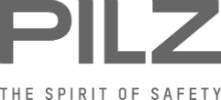SBB Cargo (Swiss Railway), the Rail Cargo Group (Austria), Mercitalia Rail (Italy) and PJ Messtechnik (Switzerland) are collaborating to develop an intelligent freight train.
Its proven automated brake test uses the automation system PSS 4000 from Pilz.
Digitalised and automated processes can increase the punctuality and reliability of rail traffic. Project partners in the ‘Intelligent freight train’ initiative include leading rail freight companies in Switzerland, Austria and Italy, as well as the engineering firm PJ Messtechnik. Their particular concern is the semi-automation of train preparation. Recently developed communication and Cloud solutions, combined with appropriate sensors, should help to simplify this considerably in the near future.
Automated rather than manual
One of the first steps towards an intelligent freight carriage is automated brake testing. At the moment this still needs to be performed manually and is time-consuming: With each newly formed train, before departure, technical staff check the functionality of the brakes directly on the carriage. In future, this process is intended to be automatic in the interests of safety, particularly with regard to shunting operations and safety in the track area.
Pilz worked with PJ Messtechnik to develop a solution that controls the brakes of the freight carriage safely and is based on the automation system PSS 4000-R. The solution installed on the freight carriage consists of the PLC controller PSSuniversal PLC, including the relevant application software. It forwards the status of the brakes as determined by the sensors and passes the information to a telematics system, which is also installed on the carriage. PSS 4000 undertakes both safety and non-safety-related control tasks in the process.
Industry-proven control technology on the carriage
The control solution is connected to the train driver’s tablet via the local wireless system and to the web-based backend system via the mobile wireless standard LTE. That way the train driver is always informed about the current status and functionality of the brakes, without having to test them manually before each departure.
The benefits are obvious: error sources can be reduced, train preparation is quicker and so trains are more reliable. Train punctuality and reliability increase significantly.
Aim: transnational standard
Automatic brake testing is suitable for all brake systems (shoe brakes and disk brakes) and can be used on various types of freight carriage. In the next two years the intention is to fit the new technology to further rail services at SBB Cargo. Rail Cargo Austria and Mercitalia are also examining the use of automated brake testing.
For more information on railway solutions from Pilz, fill out the enquiry form on this page.

